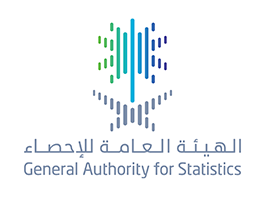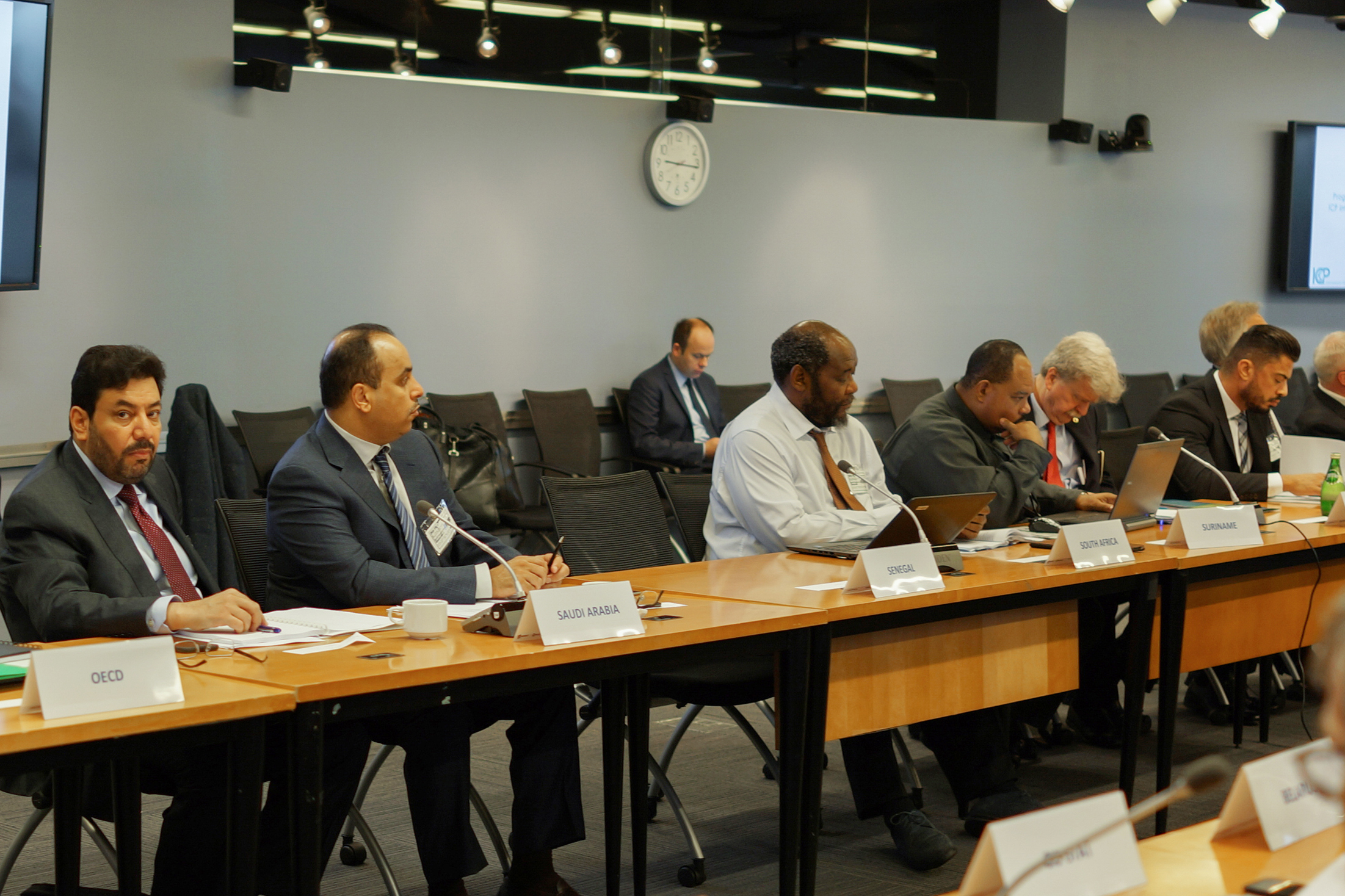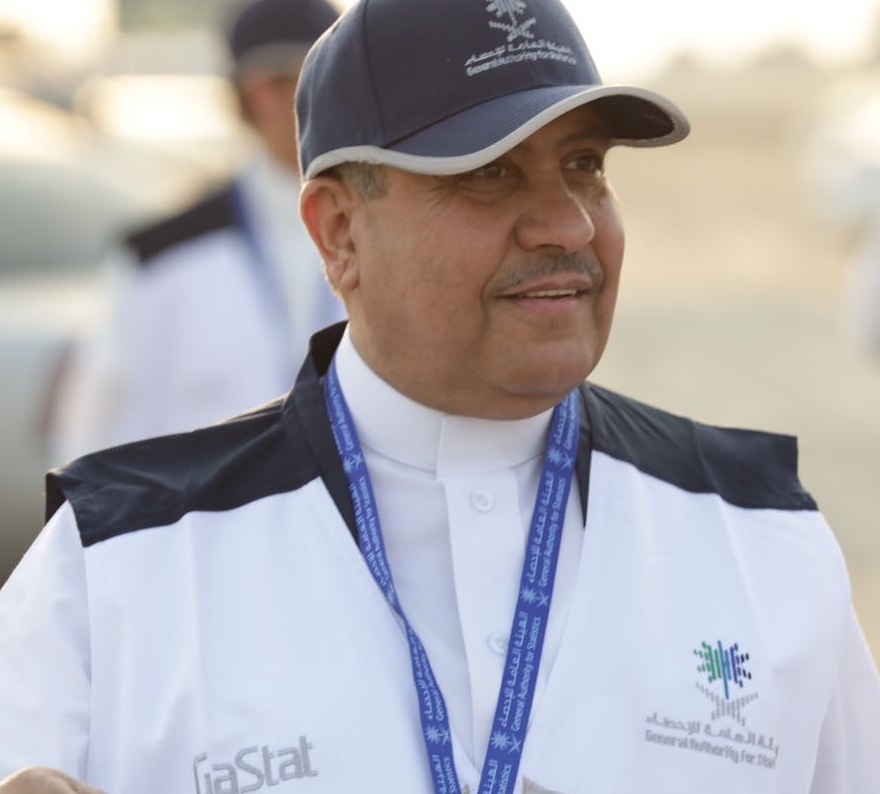Official government website of the Government of the Kingdom of Saudi Arabia
Links to official Saudi websites end withgov.sa
All links to official websites of government agencies in the Kingdom ofSaudi Arabia end with .gov.sa
Government websites use theHTTPSprotocol for encryption and security.
Secure websites in the Kingdom of Saudi Arabia use the HTTPS protocolfor encryption.

The General Authority for Statistics (GaStat): The Kingdom is enhancing its statistical position at an international level with the membership of the international expert group
14-11-2017

Saudi Arabia and South Korea Signed a Memorandum of Understanding in the Field of Statistics
31-10-2017

«Saudi Arabia statistics» progress of the Shura its strategic plan in the transition to an independent body
31-10-2017

GaStat: Real Estate Index Decreased by (6.3%) compared to the previous year and stabilized compared to Second Quarter
26-10-2017
GaStat: The Saudi unemployment rate is 12.8% in the 2nd Quarter (2017)
02-10-2017

Dr. Altekhaifi: KSA's distinctive work at statistics leads to council membership and participation in recurring meetings
19-09-2017

Director of the Department: transforming statistics into an Authority establishes effective partnerships
12-09-2017
Dr. Fahad Altekhaifi, Director of the Central Department of Statistics and Information, stated that the transformation into a “General Authority” will focus on two principal areas: serving clients and beneficiaries—which encompass all entities that utilize statistical products—and enhancing the quality of these products to more effectively support data-driven decision-making that benefits both citizens and residents.
Altekhaifi explained that the statistical sector, in its new institutional form represented by the Authority and associated statistical departments, will strive to establish effective partnerships across all sectors. The objective is to consolidate the source of official statistics and accelerate their dissemination through formats and services that enable users to leverage the information and maximize its impact.
Speaking during a workshop held yesterday at the Department’s headquarters in Riyadh, which brought together more than thirty officials and specialists from various public and private sector institutions, Altekhaifi emphasized that clients are at the core of the transformation initiative launched by the Department, aimed at establishing a high-caliber statistical authority aligned with international standards relevant to development.
Government and private sector stakeholders involved in statistical work affirmed that the ongoing transformation of Saudi Arabia’s statistical sector—spearheaded by the Central Department of Statistics and Information—is advancing rapidly and cohesively, keeping pace with the evolving demands of both national and global economies.
The workshop, organized by the Central Department of Statistics and Information, aimed to engage all beneficiaries and partners of statistical products in the transition toward the establishment of the General Authority for Statistics (GASTAT), and to develop a unified vision regarding the Authority’s current and future strategic priorities.
The Department’s meeting halls witnessed a dynamic exchange of ideas and expertise, with the participation of representatives from the Ministries of Economy and Planning, Commerce, Labor, Housing, Civil Service, Social Affairs, Education, Health, Culture and Information, Water and Electricity, and Communications and Information Technology. Also in attendance were the General Investment Authority, the Saudi Export Development Authority, the General Commission for Audiovisual Media, the Saudi Arabian Monetary Authority, the e-Government Program (Yesser), King Saud University, Saudi Aramco, and a number of independent Saudi consultants.

Dr. Altekhaifi: King Salman's speech outlines the foundations of a new development approach
12-09-2017
Dr. Fahad bin Suleiman Altekhaifi, Director General of the Central Department of Statistics and Information, affirmed that the contents of the speech delivered by the Custodian of the Two Holy Mosques King Salman bin Abdulaziz Al Saud at the outset of announcing the State’s General Budget for the fiscal year 1437/1438 AH outline a comprehensive framework for the future of the Kingdom and the effective and impactful management of its development. The Custodian of the Two Holy Mosques, King Salman bin Abdulaziz Al Saud’s directives were clearly articulated and imbued with an ambitious vision for a more stable and prosperous tomorrow.
The economic and financial reform program introduced in the speech represents a pivotal qualitative step in the journey of construction and progress. Through this program, all state institutions will be able to respond positively to the requirements of the current phase. This year’s budget contains important details of a comprehensive and integrated action plan, with the Custodian of the Two Holy Mosques King Salman bin Abdulaziz Al Saud outlining its pillars as foundational elements for building a strong and resilient economy based on ten solid principles: diversification of income sources, growth of savings, job creation, effective public-private sector partnership, continuity in implementing development and service projects, comprehensive advancement of services, improved efficiency of public spending, enhanced resource utilization, reduction of waste, and increased competitiveness of the business sector.
These ten principles form the core agenda of the Council of Economic and Development Affairs, as referenced by the Custodian of the Two Holy Mosques King Salman bin Abdulaziz Al Saud in his speech. The Council has led the transformation process with distinction and will continue to lead the development efforts in the coming period, which will witness major shifts in the management of government projects.
This places an increased responsibility on the statistical sector to ensure the quality of statistical products, especially as we now stand at the threshold of a major transformation with the conversion of the Department into the General Authority for Statistics (GASTAT). This shift aims to align statistical, data, and informational outputs with the evolving demands of the next phase of development, as these outputs constitute the primary inputs for effective developmental planning and continuous improvement.
The Director General emphasized that the statistical sector has received significant attention from the wise leadership, in recognition of its vital contribution to the development of various social, administrative, educational, economic, health, environmental, agricultural, and industrial domains. He added: “My colleagues and I in the statistical sector will spare no effort in providing everything that contributes to the development and construction of this nation’s future to perpetuate the blessings of security and prosperity upon us.

GASTAT: Final announcement of the number of Pilgrims 1438 comes after sunset on the day of Arafah
12-09-2017
A detailed report on Hajj statistics featuring 40 key statistical outputs to be released following the official announcement
The General Authority for Statistics (GASTAT): Final Count of Hajj Pilgrims for 1438 AH to Be Announced After Sunset on the Day of Arafah
GASTAT has announced that the counting and enumeration of pilgrims for the 1438 AH Hajj season, through the official entry points to the city of Makkah, will conclude at 6:30 PM, coinciding with sunset on Thursday, the ninth of Dhul-Hijjah (Day of Arafah). The final announcement of the total number of pilgrims and the release of the detailed Hajj statistics report will follow a few hours later, the same evening.
Mr. Abdullah Al-Batel, Deputy President of the Authority for Statistical Operations, confirmed that the Hajj Statistics Report, which will be issued shortly after the official announcement, will include forty principal statistical outputs intended to support strategic planning for serving the pilgrims and visitors to the Two Holy Mosques. He explained that the report provides comprehensive and accurate data on the number of pilgrims, classified by their methods and dates of arrival, and includes a variety of analytical tables and charts presenting figures such as the number of domestic pilgrims by gender and arrival method, the arrival patterns of Saudi pilgrims, the breakdown of non-Saudi domestic pilgrims by gender and nationality, their distribution by arrival method and nationality, and comparative figures across different nationalities. The report also details the number of vehicles used to transport domestic pilgrims to Makkah, organized by vehicle type and date of arrival. Furthermore, it presents data on international pilgrims by gender and arrival method, by gender and date of arrival, as well as comparative statistics on their methods of arrival. This information will be made available in multiple formats, including the Hajj Statistical Map, which allows users to easily access all data related to Hajj statistics.
Mr. Al-Batel further emphasized that the Hajj Statistics Program, implemented by GASTAT, aims to provide detailed and reliable data on the number of pilgrims from both inside and outside the Kingdom. These statistics serve as a foundational input for all relevant government entities to support future planning and ensure the delivery of essential services to pilgrims, including those related to social, health, security, food, and transportation sectors. The program relies on time-series data to estimate the manpower required to serve pilgrims and ensure their safety and comfort throughout the Hajj season. It also provides essential insights into infrastructure and facility needs in Makkah and the Holy Sites, which are considered when preparing development plans. In addition, the program contributes to the design of annual traffic management plans, including the phases of escalation and dispersal, and supports researchers, academics, and stakeholders interested in this field. It also assists in evaluating the efforts of various entities responsible for serving pilgrims and monitoring changes in arrival patterns.
In response to inquiries regarding the scope of enumeration and whether it includes drivers of vehicles and buses, Mr. Al-Batel clarified that the official unit of counting in Hajj statistics is the pilgrim in the state of Ihram. Accordingly, the enumeration of domestic pilgrims is limited to those in Ihram who are physically counted at the Hajj Statistics Centers located at the entrances to the city of Makkah. If a driver is in a state of Ihram, he is counted as a pilgrim. The enumeration includes all Saudi and non-Saudi individuals, male and female, arriving from within the Kingdom to perform Hajj. As for international pilgrims, they are counted by the General Directorate of Passports at the Kingdom’s official ports of entry, and their figures are subsequently provided to GASTAT to be added to the total number of pilgrims.

The General Authority for Statistics (GaStat): The Kingdom is enhancing its statistical position at an international level with the membership of the international expert group
14-11-2017

Saudi Arabia and South Korea Signed a Memorandum of Understanding in the Field of Statistics
31-10-2017

«Saudi Arabia statistics» progress of the Shura its strategic plan in the transition to an independent body
31-10-2017

GaStat: Real Estate Index Decreased by (6.3%) compared to the previous year and stabilized compared to Second Quarter
26-10-2017
GaStat: The Saudi unemployment rate is 12.8% in the 2nd Quarter (2017)
02-10-2017

Dr. Altekhaifi: KSA's distinctive work at statistics leads to council membership and participation in recurring meetings
19-09-2017

Director of the Department: transforming statistics into an Authority establishes effective partnerships
12-09-2017
Dr. Fahad Altekhaifi, Director of the Central Department of Statistics and Information, stated that the transformation into a “General Authority” will focus on two principal areas: serving clients and beneficiaries—which encompass all entities that utilize statistical products—and enhancing the quality of these products to more effectively support data-driven decision-making that benefits both citizens and residents.
Altekhaifi explained that the statistical sector, in its new institutional form represented by the Authority and associated statistical departments, will strive to establish effective partnerships across all sectors. The objective is to consolidate the source of official statistics and accelerate their dissemination through formats and services that enable users to leverage the information and maximize its impact.
Speaking during a workshop held yesterday at the Department’s headquarters in Riyadh, which brought together more than thirty officials and specialists from various public and private sector institutions, Altekhaifi emphasized that clients are at the core of the transformation initiative launched by the Department, aimed at establishing a high-caliber statistical authority aligned with international standards relevant to development.
Government and private sector stakeholders involved in statistical work affirmed that the ongoing transformation of Saudi Arabia’s statistical sector—spearheaded by the Central Department of Statistics and Information—is advancing rapidly and cohesively, keeping pace with the evolving demands of both national and global economies.
The workshop, organized by the Central Department of Statistics and Information, aimed to engage all beneficiaries and partners of statistical products in the transition toward the establishment of the General Authority for Statistics (GASTAT), and to develop a unified vision regarding the Authority’s current and future strategic priorities.
The Department’s meeting halls witnessed a dynamic exchange of ideas and expertise, with the participation of representatives from the Ministries of Economy and Planning, Commerce, Labor, Housing, Civil Service, Social Affairs, Education, Health, Culture and Information, Water and Electricity, and Communications and Information Technology. Also in attendance were the General Investment Authority, the Saudi Export Development Authority, the General Commission for Audiovisual Media, the Saudi Arabian Monetary Authority, the e-Government Program (Yesser), King Saud University, Saudi Aramco, and a number of independent Saudi consultants.

Dr. Altekhaifi: King Salman's speech outlines the foundations of a new development approach
12-09-2017
Dr. Fahad bin Suleiman Altekhaifi, Director General of the Central Department of Statistics and Information, affirmed that the contents of the speech delivered by the Custodian of the Two Holy Mosques King Salman bin Abdulaziz Al Saud at the outset of announcing the State’s General Budget for the fiscal year 1437/1438 AH outline a comprehensive framework for the future of the Kingdom and the effective and impactful management of its development. The Custodian of the Two Holy Mosques, King Salman bin Abdulaziz Al Saud’s directives were clearly articulated and imbued with an ambitious vision for a more stable and prosperous tomorrow.
The economic and financial reform program introduced in the speech represents a pivotal qualitative step in the journey of construction and progress. Through this program, all state institutions will be able to respond positively to the requirements of the current phase. This year’s budget contains important details of a comprehensive and integrated action plan, with the Custodian of the Two Holy Mosques King Salman bin Abdulaziz Al Saud outlining its pillars as foundational elements for building a strong and resilient economy based on ten solid principles: diversification of income sources, growth of savings, job creation, effective public-private sector partnership, continuity in implementing development and service projects, comprehensive advancement of services, improved efficiency of public spending, enhanced resource utilization, reduction of waste, and increased competitiveness of the business sector.
These ten principles form the core agenda of the Council of Economic and Development Affairs, as referenced by the Custodian of the Two Holy Mosques King Salman bin Abdulaziz Al Saud in his speech. The Council has led the transformation process with distinction and will continue to lead the development efforts in the coming period, which will witness major shifts in the management of government projects.
This places an increased responsibility on the statistical sector to ensure the quality of statistical products, especially as we now stand at the threshold of a major transformation with the conversion of the Department into the General Authority for Statistics (GASTAT). This shift aims to align statistical, data, and informational outputs with the evolving demands of the next phase of development, as these outputs constitute the primary inputs for effective developmental planning and continuous improvement.
The Director General emphasized that the statistical sector has received significant attention from the wise leadership, in recognition of its vital contribution to the development of various social, administrative, educational, economic, health, environmental, agricultural, and industrial domains. He added: “My colleagues and I in the statistical sector will spare no effort in providing everything that contributes to the development and construction of this nation’s future to perpetuate the blessings of security and prosperity upon us.

GASTAT: Final announcement of the number of Pilgrims 1438 comes after sunset on the day of Arafah
12-09-2017
A detailed report on Hajj statistics featuring 40 key statistical outputs to be released following the official announcement
The General Authority for Statistics (GASTAT): Final Count of Hajj Pilgrims for 1438 AH to Be Announced After Sunset on the Day of Arafah
GASTAT has announced that the counting and enumeration of pilgrims for the 1438 AH Hajj season, through the official entry points to the city of Makkah, will conclude at 6:30 PM, coinciding with sunset on Thursday, the ninth of Dhul-Hijjah (Day of Arafah). The final announcement of the total number of pilgrims and the release of the detailed Hajj statistics report will follow a few hours later, the same evening.
Mr. Abdullah Al-Batel, Deputy President of the Authority for Statistical Operations, confirmed that the Hajj Statistics Report, which will be issued shortly after the official announcement, will include forty principal statistical outputs intended to support strategic planning for serving the pilgrims and visitors to the Two Holy Mosques. He explained that the report provides comprehensive and accurate data on the number of pilgrims, classified by their methods and dates of arrival, and includes a variety of analytical tables and charts presenting figures such as the number of domestic pilgrims by gender and arrival method, the arrival patterns of Saudi pilgrims, the breakdown of non-Saudi domestic pilgrims by gender and nationality, their distribution by arrival method and nationality, and comparative figures across different nationalities. The report also details the number of vehicles used to transport domestic pilgrims to Makkah, organized by vehicle type and date of arrival. Furthermore, it presents data on international pilgrims by gender and arrival method, by gender and date of arrival, as well as comparative statistics on their methods of arrival. This information will be made available in multiple formats, including the Hajj Statistical Map, which allows users to easily access all data related to Hajj statistics.
Mr. Al-Batel further emphasized that the Hajj Statistics Program, implemented by GASTAT, aims to provide detailed and reliable data on the number of pilgrims from both inside and outside the Kingdom. These statistics serve as a foundational input for all relevant government entities to support future planning and ensure the delivery of essential services to pilgrims, including those related to social, health, security, food, and transportation sectors. The program relies on time-series data to estimate the manpower required to serve pilgrims and ensure their safety and comfort throughout the Hajj season. It also provides essential insights into infrastructure and facility needs in Makkah and the Holy Sites, which are considered when preparing development plans. In addition, the program contributes to the design of annual traffic management plans, including the phases of escalation and dispersal, and supports researchers, academics, and stakeholders interested in this field. It also assists in evaluating the efforts of various entities responsible for serving pilgrims and monitoring changes in arrival patterns.
In response to inquiries regarding the scope of enumeration and whether it includes drivers of vehicles and buses, Mr. Al-Batel clarified that the official unit of counting in Hajj statistics is the pilgrim in the state of Ihram. Accordingly, the enumeration of domestic pilgrims is limited to those in Ihram who are physically counted at the Hajj Statistics Centers located at the entrances to the city of Makkah. If a driver is in a state of Ihram, he is counted as a pilgrim. The enumeration includes all Saudi and non-Saudi individuals, male and female, arriving from within the Kingdom to perform Hajj. As for international pilgrims, they are counted by the General Directorate of Passports at the Kingdom’s official ports of entry, and their figures are subsequently provided to GASTAT to be added to the total number of pilgrims.